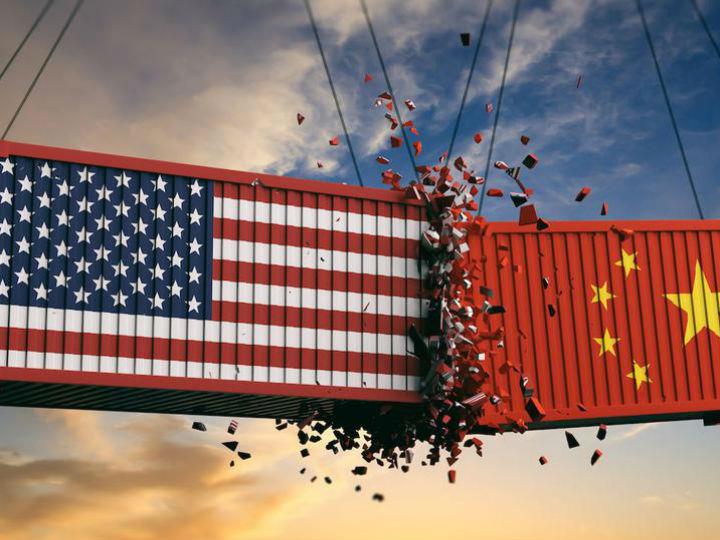by Joe Kaeser*
-The trade dispute between the US and China threatens to sever the ties that hold the global economy together.
-The US and China have not decoupled yet, but that could happen if leaders on both sides do not correct their course.
-Multinational companies must cooperate and compete to prevent decoupling.
At the outset of 2020, the world’s two largest economies are not getting along. In July 2018, the current US administration imposed tariffs on $34 billion of goods imported from China.
US President Donald Trump had long since zeroed in on the US trade deficit with China and accused China of unfair trade practices and intellectual property theft. Yet, despite the tough rhetoric and the threat of tariffs – or maybe because of that, China did not give in.
Instead, it retaliated with painful tariffs on US imports, notably agricultural products such as soy beans. To date, the US has charged tariffs on more than $360 billion of Chinese goods, and China has responded with tariffs on more than $110 billion of US products. Chinese investment in the US has plunged nearly 90% since President Trump took office. The impact on the global economy is already tangible; in Germany and other EU countries there are signs of an economic slowdown.
Since neither Beijing nor Washington wants to lose face, no agreement is in sight. It’s a deadlock. So, at the outset of 2020, the world’s economic superpowers are either flirting with decoupling or simply letting it happen without regard for the consequences. Unfortunately, that is where we stand today.
Just over 30 years ago, during the Cold War, the world was divided into two spheres of influence with two different political systems and two different sets of rules. Imagine reviving that kind of world order today: the international flow of capital, information, and goods would falter, global supply chains would be broken, and multinational companies employing hundreds of thousands of people in host countries would have to choose sides; it would be difficult to do business and invest in countries affiliated with the “other” superpower.
Decades of economic development and international cooperation would be nullified, and that would most likely result in a far greater global economic recession than the recession set off by the 2008 financial crisis. In other words, decoupling the world’s two leading economies is a recipe for an economic apocalypse.
So, yes, this is a wake-up call. The leaders of both countries should do everything in their power to find new ways to de-escalate trade conflicts and to cooperate despite their differences.
One fundamental difference is the political system. In the decades following Richard Nixon’s visit to China in 1972, the assumption was made that economic convergence would lead to political convergence, that trade, international cooperation, and a strong dose of consumerism would eventually persuade China to open its markets and make the transition to democracy.
Today, however, it is evident that this assumption is wrong. China is not going to change its political system. And why should it? One could argue that it was this system and the hard work of the Chinese people that made China’s unprecedented economic miracle possible. Since the 1990s, China’s GDP has grown nine-fold. In only a few decades, hundreds of millions of people were lifted out of poverty and China became the world’s factory and second largest economy.
Accepting that neither side is going to change its political system would help the US and China, as well as Europe, better manage expectations and avoid unnecessary friction and frustration. That alone would do much to improve trade relations.
The US and Europe must also accept the fact that the balance of economic power is shifting to the east. According to estimates, China will become the world’s biggest economy by 2030. And with the New Silk Road, the Belt and Road Initiative (BRI), China’s geopolitical influence will grow. About 126 countries have already joined the BRI, and these countries account for about 70% of the world population and more than 50% of global GDP. According to estimates, China will have initiated or completed BRI infrastructure projects worth a total of €1 trillion by 2025.
So, what can multinational companies do to prevent a decoupling of China and the US? The answer is co-opetition: cooperate and compete – with a clear stance and eyes wide open.
For cooperation to work, all parties involved must benefit. Win-win is the watchword. And this is critical in a world that is more connected than ever before. That’s what we at Siemens advocated at our first Belt and Road International Summit in Beijing in June of 2018. The response was overwhelming. Over 1,200 representatives from over 30 countries took part. If the BRI becomes a zero-sum game, international support will wane and ultimately projects will fail.
To be able to compete, a company must lead in innovation and invest in training, education, and infrastructure; it must adopt best practices and meet highest governance standards; and it must serve society wherever it does business. Whether friend, enemy, or frenemy, no one is interested in a second-rate company.
In 1985, Siemens was the first multinational company to sign a cooperation agreement with the Chinese government. The agreement resulted in an unprecedented transfer of technology and knowledge. It went far beyond the sale of products. It called for founding joint ventures and providing local training and education.
Just 10 years later, Siemens operated 30 joint ventures in China. Today, the company generates annual revenue of about €8 billion in China and employs more than 33,000 people. It’s one of the largest foreign-invested companies in China, with interests in 89 local companies.
Both China and Siemens have benefited enormously from co-opetition. And that is how multinational companies can and should prevent decoupling in the future.
*President and Chief Executive Officer, Siemens
**first published in: www.weforum.org




 By: N. Peter Kramer
By: N. Peter Kramer
